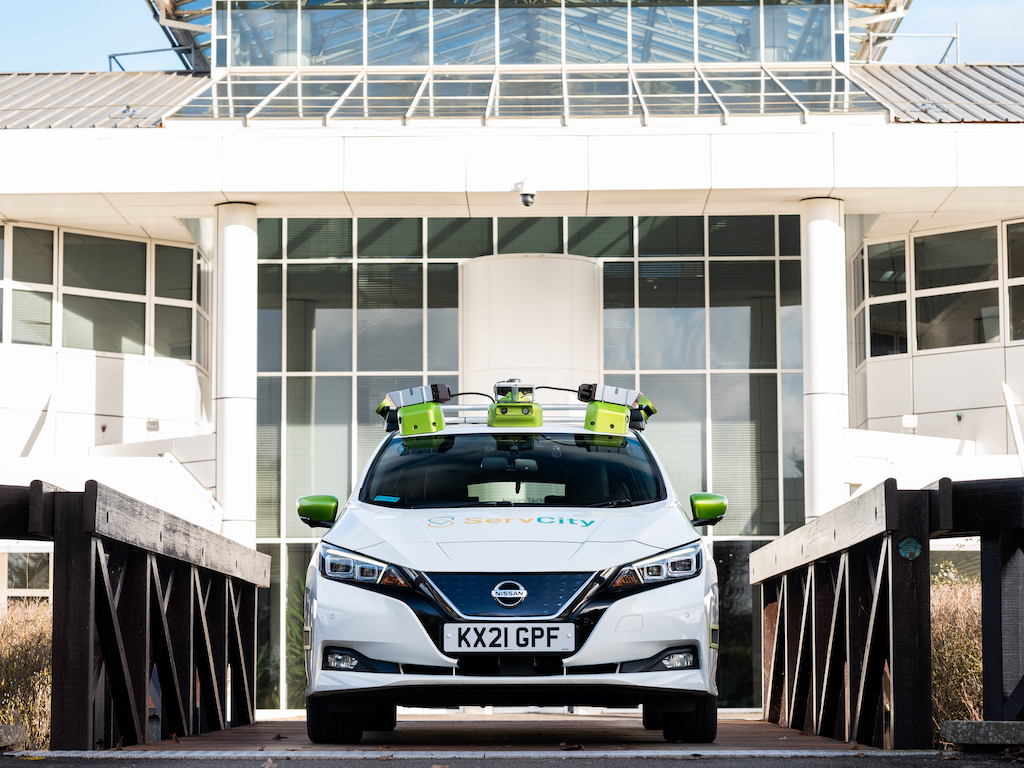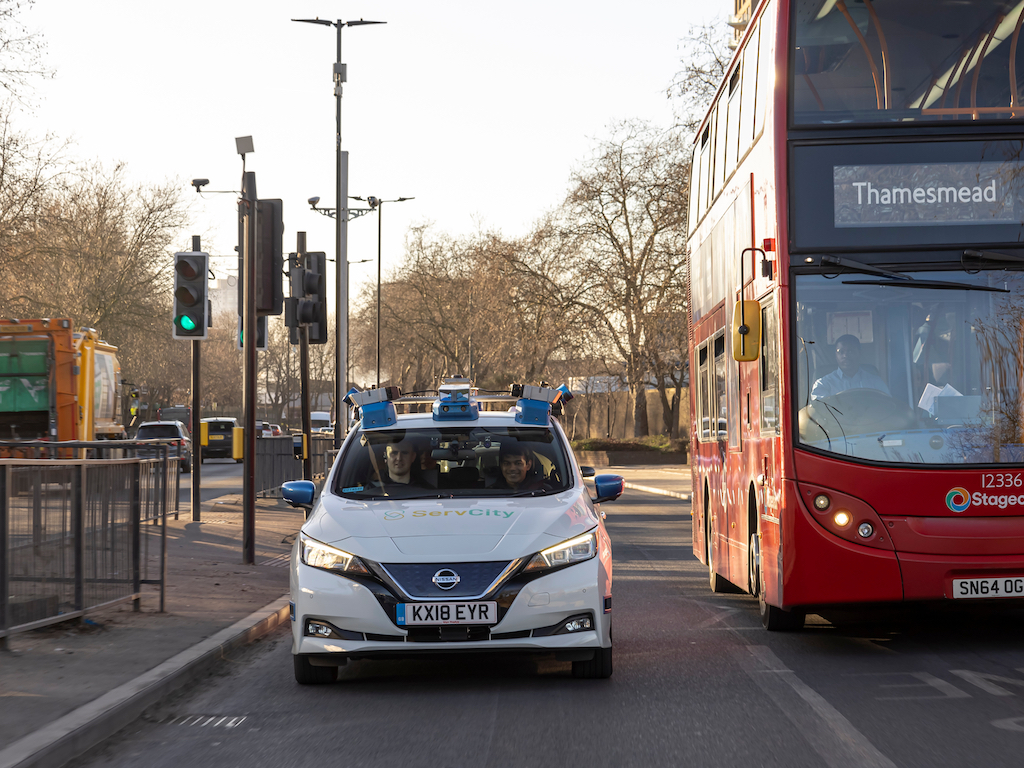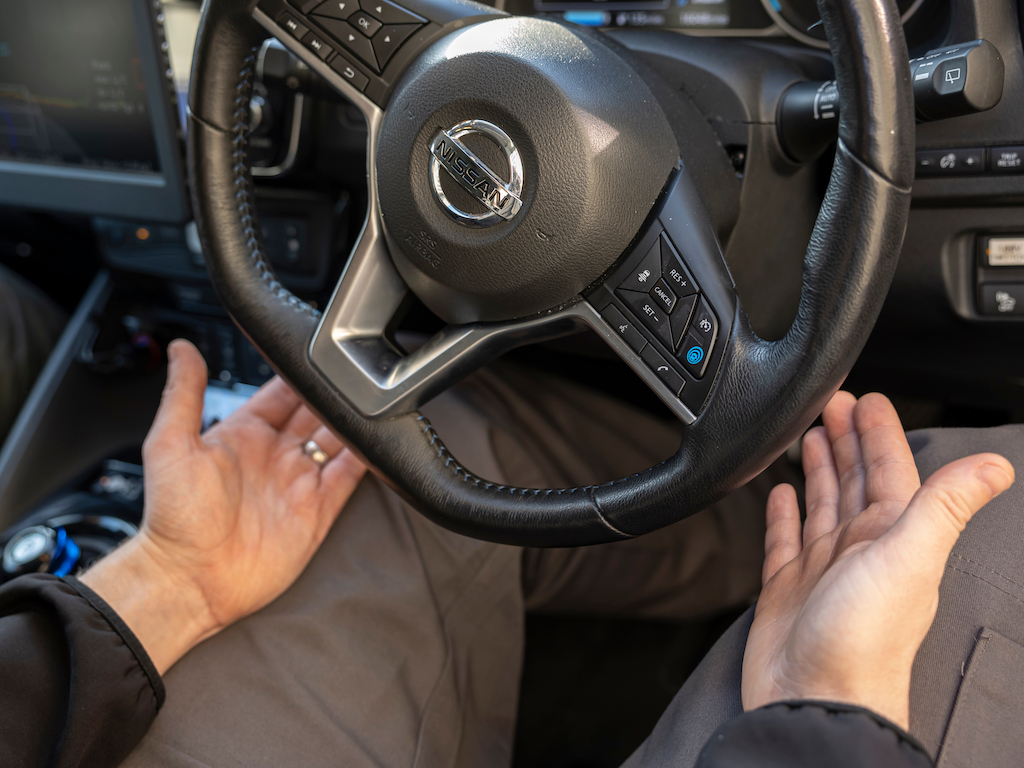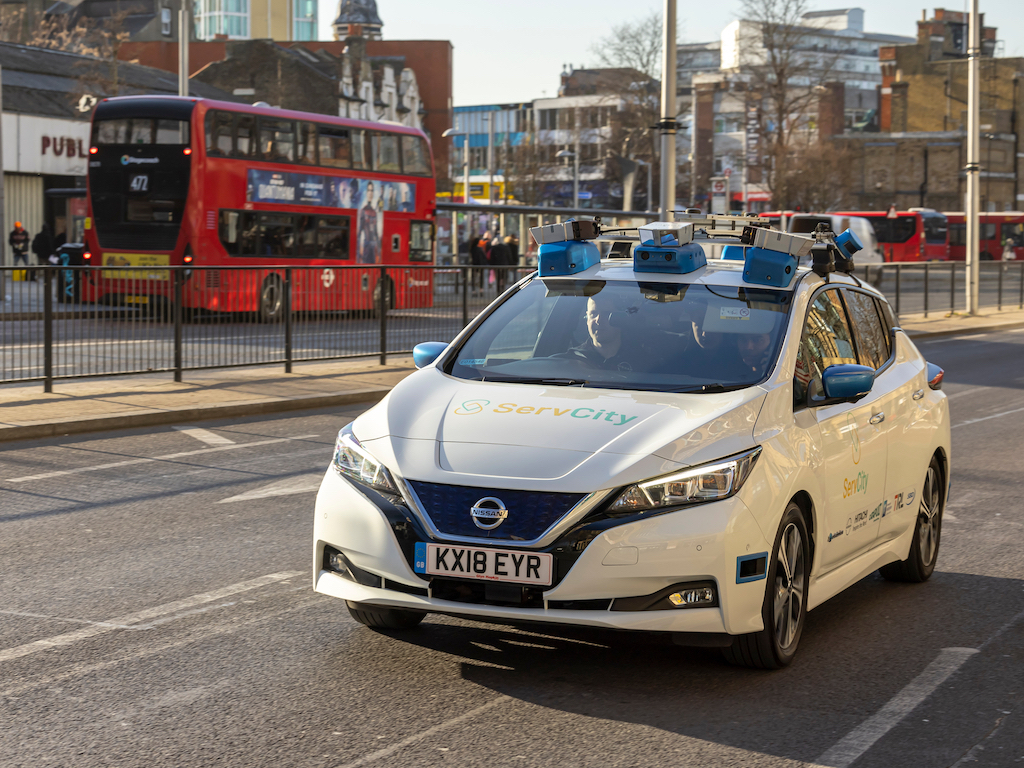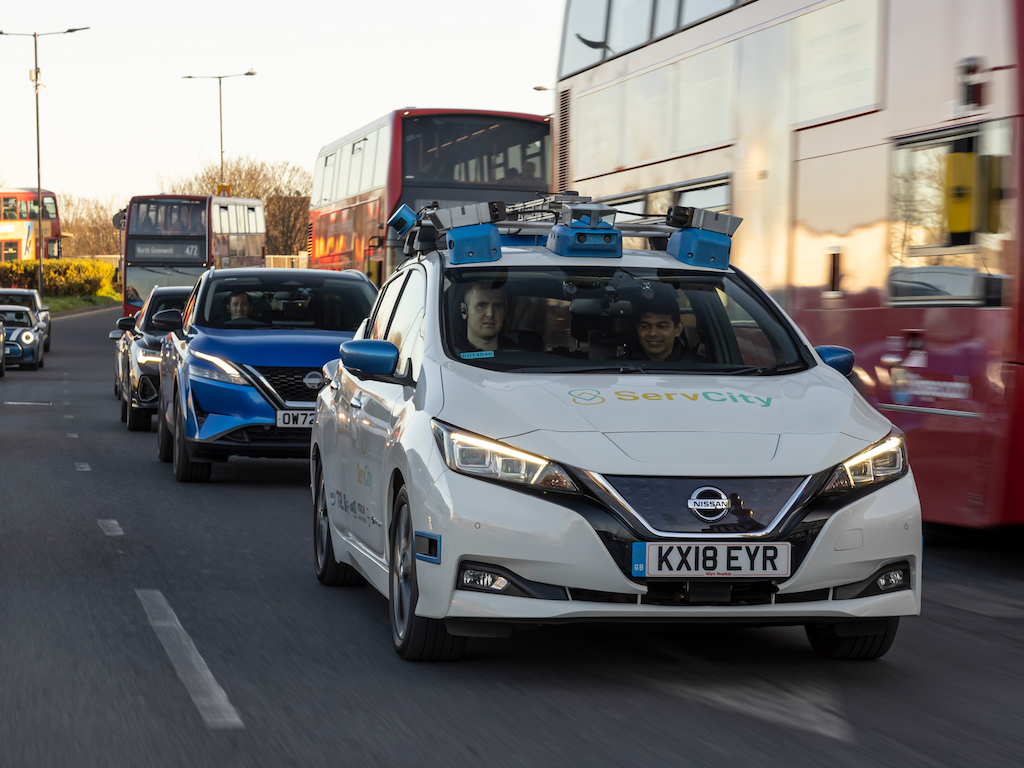Nissan-backed ServCity project develops blueprint for autonomous mobility
A UK government-backed project that trialled a connected and autonomous vehicle (CAV) on the roads of London has successfully concluded, providing a blueprint to help get the UK’s cities ‘CAV-ready’.
Carried out by a consortium of firms that included Nissan, ServCity completed 1,600 autonomous driving miles during challenging validation tests of future CAV technology.
The trials were carried out in a fully electric Nissan Leaf and will accelerate future autonomous mobility in complex urban environments. The project also shows how cities could deliver a ‘Robotaxi’ style service in the future for the benefit of city residents and commuters.
The project was carried out in collaboration with the Smart Mobility Living Lab (SMLL) in Greenwich, using SMLL’s network of roadside sensors and a data processing suite to create a futuristic co-operative infrastructure environment, sending new sources of data to the CAV to improve its situational awareness.
The infrastructure can detect an object which is not within line or sight of the vehicle (e.g., around a corner or in the distance) and inform the vehicle so that it can manoeuvre to ensure smooth traffic flow, such as changing lane.
The project was run to show that CAVs are safe to introduce on UK roads as well as having a demonstrable benefit to society.
The work concluded with a series of demonstrations to stakeholders, enabling guests to experience first-hand, advanced autonomous drive technologies integrated with CAV-ready infrastructure on the streets of Greenwich.
UK Transport Minister Jesse Norman said: “The Government has invested £7m in this project to be at the forefront of innovation. Since then, ServCity has proven key to answer the practical questions of how to integrate self-driving vehicles into cities for the public good.”
The project follows Nissan’s involvement in the HumanDrive project, which explored the use of autonomously driven vehicles in motorway scenarios and culminated in the successful completion of a 230-mile self-driven journey from Cranfield to Sunderland back in 2020.
ServCity marks the next phase of this research and looks at how autonomously driven vehicles can be deployed in complex urban environments to deliver safe, practical, everyday mobility in cities. Autonomous drive technology is a key pillar within Nissan Ambition 2030, the company’s long-term vision for a cleaner, safer and more inclusive world.
David Moss, senior vice president, region research & development for Nissan AMIEO, said: “We are extremely proud to be a part of the ServCity project and our 100% electric Nissan Leaf has proven to be the ideal test vehicle. Through our Nissan Ambition 2030 long-term vision, we are committed to supporting greater access to safe and exciting research projects such as ServCity are vital to the evolution of technology.
“Through our world-class R&D base in Cranfield in the UK, Nissan is continuously innovating to bring cutting-edge, purpose-driven technologies that benefit our customers. ServCity’s achievements contribute to our efforts to usher in a future where we hope to see zero fatalities on the road while providing customers with the added comfort and convenience that come from advanced autonomous drive technologies.”
ServCity is jointly funded by the UK government and consortium partners and delivered by the UK’s innovation agency, Innovate UK. Partners include Nissan, Connected Places Catapult, TRL, Hitachi Europe, the University of Nottingham and SBD Automotive.

